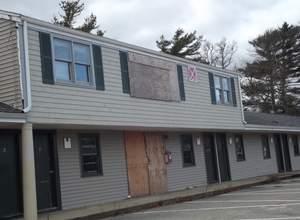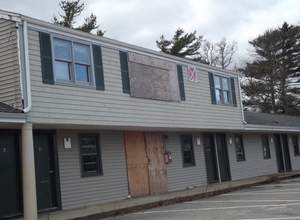Officials discuss stricter regulations on long-term motel stays
The Wareham Board of Health is considering stricter motel regulations aimed at curbing long-term and permanent residencies at the seven motels in town.
The board reviewed regulations adopted by Bourne in 1982 that put strict limits on the length of stay in local motels during their meeting Wednesday.
"The whole issue of motels has morphed from its traditional use to becoming permanent housing for people," said Health Inspector Richard Johnson.
Bourne's motel regulations say that occupancy at a motel shall be limited to three weeks and, "Should a person wish to extend his or her stay at said motel beyond a three week time period, they must continue their stay in an efficiency unit."
An efficiency unit is described as a room that provides sleeping and cooking accommodations and meets the minimum state standards for human habitation.
The Bourne regulation goes on to say that efficiency units can be lived in up to 90 days, but proof of a permanent residency must be provided by the occupant at the time of registration.
Johnson said there are efficiency units in town, but they are being rented out long-term or are being lived in permanently.
Selectman Judith Whiteside said there are many children living at these motels where there are no cooking accommodations, and that the schools and other local organizations have to help feed them.
Many of these children are from families that are placed into the motels, where there are no cooking accommodations, by the state. Whiteside said the town pays to bus children in and out of Wareham to attend different schools.
"If a kid lived in Springfield and then moved here because his family is homeless and they want to finish their senior year at Springfield, Wareham has to pay for that," she said.
"Only the state of Massachusetts thinks it's ok to bus kids to school 100 miles away from where they live," said Selectman Patrick Tropeano, as selectmen discussed the issue at their May 13 meeting.
Alan Slavin said last year the town spent around $164,000 in homeless student transportation and the town only received $116,394 in return from the state as part of the McKinney-Vento Act.
"It is one of the many unfunded mandates that we live under," Whiteside said.
Some members of the Board of Health had reservations about the strict language in the Bourne regulations.
"In effect this is taking housing away from people who need it," said board member Catherine Phinney.
"I can't see setting a limited time to stay if you've got nowhere else to go," said board member Greg Montiero.
But resident Deborah Rose said the town should adopt the Bourne regulations.
"My concern is the children. There are no homeless regulations in Massachusetts so this is where they send their kids," she said. "If enough cities and towns get together and do this, we will force some people's hands."
Whiteside said if Wareham were to adopt these regulations, "the state might actually have to figure out what to do with these people."
She said because there are so many motels in town and because it's been going on for so long, "it will continue until we say no to how this is done."
Board of Health member Amy Wiegandt wanted to know what percentage of towns in Massachusetts had strict hotel/motel/guest cabin regulations similar to Bourne. While that answer wasn't immediately apparent, Wiegandt said the Bourne regulations make sense for Wareham and for every town in the state.
The Board of Health said they will review the language in the regulations and return to it at a later date. Should the board choose to adopt the new regulations there would first be posted public hearings on the matter. Whiteside said similar regulations are in the process of being adopted in Dartmouth and many other towns across the state.
"This bylaw puts the responsibility in Wareham's lap," she said. "We have a lot of issues. We don't need anyone else's."
















